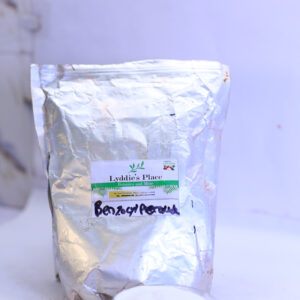Allantoin Powder
C₄H₆N₄O₃
Gentle Skin Healer & Moisture Magnet
Source & Overview
Allantoin is a naturally occurring compound found in plants like comfrey root (Symphytum officinale), sugar beets, and chamomile. Most commercially available allantoin is lab-synthesized for purity and consistency. This white, odorless powder is renowned for its non-irritating, skin-conditioning properties.
Key Benefits
✨ Skin Repair & Hydration:
- Promotes cell regeneration, accelerates wound healing, and softens rough/dry skin.
- Binds moisture to the skin, enhancing hydration without clogging pores.
✨ Gentle Exfoliation: - Keratolytic action removes dead skin cells, smoothing texture without irritation.
✨ Soothing Agent: - Calms redness, eczema, psoriasis, and sunburn. Ideal for sensitive or post-procedure skin.
✨ Compatibility: - Works synergistically with acids (AHAs/BHAs), retinoids, and other actives to reduce irritation.
How to Use in Skincare
- DIY Formulations:
- Serums/Moisturizers: Dissolve 0.5–2% allantoin powder (e.g., 0.5g per 100g base) in warm water or aloe vera gel.
- Face Masks: Mix 1 tsp allantoin + 2 tsp colloidal oatmeal + 1 tbsp yogurt for a soothing treatment.
- Toners: Add 0.5% to rosewater or green tea for a hydrating mist.
- Pre-Made Products:
- Look for allantoin in creams, lotions, and aftersun products.
Safety & Tips
- Concentration: 0.1–2% is effective and safe for most skin types.
- Solubility: Dissolves best in warm water (not oil).
- Storage: Keep in an airtight container, away from moisture and heat.
- Patch Test: Rare allergies possible (especially with plant-derived versions).
Pro Tips
- Post-Shave Soother: Blend with witch hazel and aloe gel to calm razor burn.
- Hand Cream Booster: Add to shea butter for cracked, dry hands.
- Scalp Care: Mix into shampoos to soothe flakiness or irritation.


